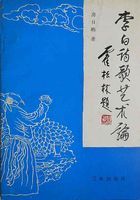If we were asked to say, in the fewest possible words, what we conceive to be Bentham's place among these great intellectual benefactors of humanity; what he was, and what he was not; what kind of service he did and did not render to truth; we should say he was not a great philosopher, but he was a great reformer in philosophy. He brought into philosophy something which it greatly needed, and for want of which it was at a stand. It was not his doctrines which did this, it was his mode of arriving at them. He introduced into morals and politics those habits of thought and modes of investigation, which are essential to the idea of science; and the absence of which made those departments of inquiry, as physics had been before Bacon, a field of interminable discussion, leading to no result. It was not his opinions, in short, but his method, that constituted the novelty and the value of what he did; a value beyond all price, even though we should reject the whole, as we unquestionably must a large part, of the opinions themselves.
Bentham's method may be shortly described as the method of detail; of treating wholes by separating them into their parts, abstractions by resolving them into Things, classes and generalities by distinguishing them into the individuals of which they are made up; and breaking every question into pieces before attempting to solve it. The precise amount of originality of this process, considered as a logical conception -- its degree of connexion with the methods of physical science, or with the previous labours of Bacon, Hobbes or Locke -- is not an essential consideration in this pace. Whatever originality there was in the method -- in the subjects he applied it to, and in the rigidity with which he adhered to it, there was the greatest. Hence his interminable classifications. Hence his elaborate demonstrations of the most acknowledged truths. That murder, incendiarism, robbery, are mischievous actions, he will not take for granted without proof; let the thing appear ever so self-evident, he will know the why and the how of it with the last degree of precision;he will distinguish all the different mischiefs of a crime, whether of the first, the second or the third order, namely, 1.
the evil to the sufferer, and to his personal connexions; 2. the danger from example, and the alarm or painful feeling of insecurity; and 3. the discouragement to industry and useful pursuits arising from the alarm, and the trouble and resources which must be expended in warding off the danger. After this enumeration, he will prove from the laws of human feeling, that even the first of these evils, the sufferings of the immediate victim, will on the average greatly outweigh the pleasure reaped by the offender; much more when all the other evils are taken into account. Unless this could be proved, he would account the infliction of punishment unwarrantable; and for taking the trouble to prove it formally, his defence is, 'there are truths which it is necessary to prove, not for their own sakes, because they are acknowledged, but that an opening may be made for the reception of other truths which depend upon them. It is in this manner we provide for the reception of first principles, which, once received, prepare the way for admission of all other truths.' To which may be added, that in this manner also we discipline the mind for practising the same sort of dissection upon questions more complicated and of more doubtful issue.
It is a sound maxim, and one which all close thinkers have felt, but which no one before Bentham ever so consistently applied, that error lurks in generalities: that the human mind is not capable of embracing a complex whole, until it has surveyed and catalogued the parts of which that whole is made up; that abstractions are not realities per se, but an abridged mode of expressing facts, and that the only practical mode of dealing with them is to trace them back to the facts (whether of experience or of consciousness) of which they are the expression.
Proceeding on this principle, Bentham makes short work with the ordinary modes of moral and political reasoning. These, it appeared to him, when hunted to their source, for the most part terminated in phrases. In politics, liberty, social order, constitution, law of nature, social compact, etc., were the catchwords: ethics had its analogous ones. Such were the arguments on which the gravest questions of morality and policy were made to turn; not reasons, but allusions to reasons;sacramental expressions, by which a summary appeal was made to some general sentiment of mankind, or to some maxim in familiar use, which might be true or not, but the limitations of which no one had ever critically examined. And this satisfied other people; but not Bentham. He required something more than opinion as a reason for opinion. Whenever he found a phrase used as an argument for or against anything, he insisted upon knowing what it meant; whether it appealed to any standard, or gave intimation of any matter of fact relevant to the question; and if he could not find that it did either, he treated it as an attempt on the part of the disputant to impose his own individual sentiment on other people, without giving them a reason for it; a '
contrivance for avoiding the obligation of appealing to any external standard, and for prevailing upon the reader to accept of the author's sentiment and opinion as a reason, and that a sufficient one, for itself. Bentham shall speak for himself on this subject: the passage is from his first systematic work, 'Introduction to the Principles of Morals and Legislation', and we could scarcely quote anything more strongly exemplifying both the strength and weakness of his mode of philosophizing.















